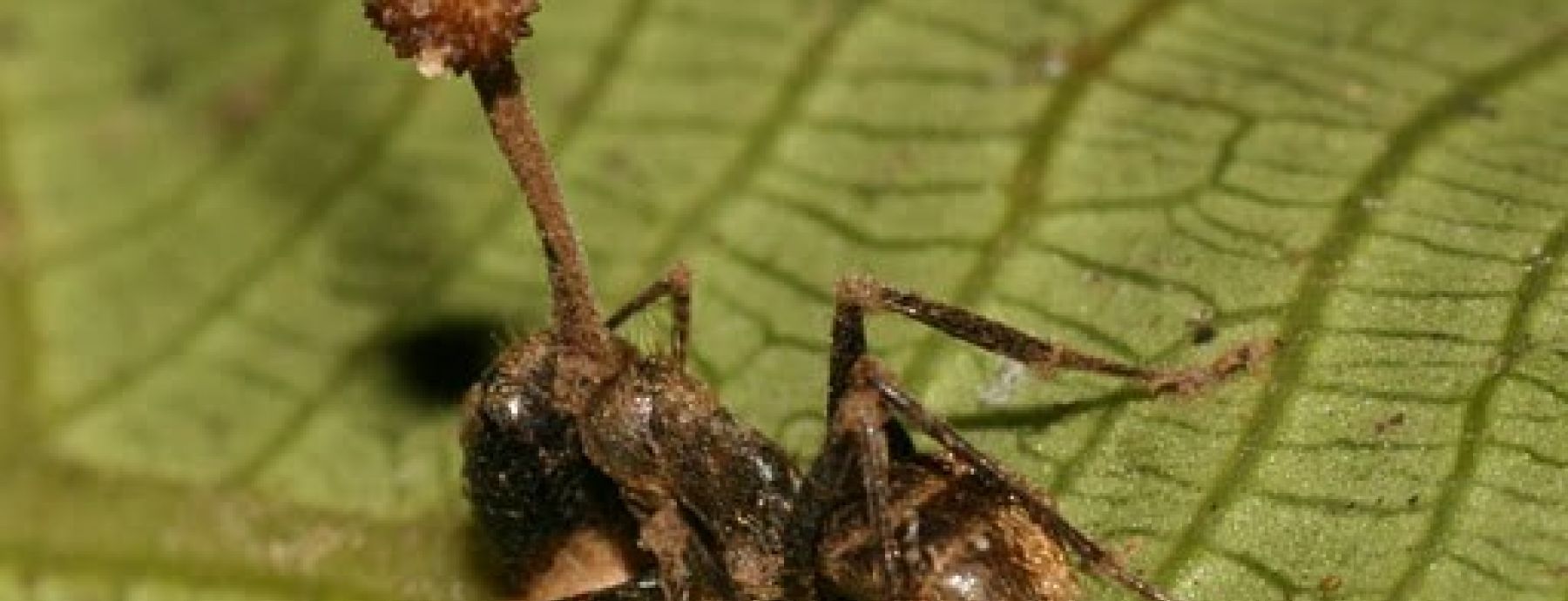Parasites have the incredible ability to manipulate their host to facilitate their own survival. For instance, they can alter host physiology and behavior in such a way that prevents host immune-mediated killing or results in better reproductive or transmission success for the invading parasite.
Penn State professor of Entomology and Biology David P. Hughes led a study examining the parasitic invasion of the ant Camponotus leonardi by the fungus Ophiocordyceps unilateralis in a Thai rainforest. He found that this parasite caused the ants to exhibit unusual zombie-like behaviors that facilitated survival and further transmission of the fungus to other ants. First, these ants, which normally reside in the rainforest canopy, convulse and fall to the forest floor when infected by O. unilateralis. This behavior was preceded by a "death grip" onto the veins of leaves caused by damage to the ant's mandibular muscles resulting from the production of chemicals by fungal cells within the head of the ant. Subsequently, the ants died while remaining indefinitely attached to the leaves, allowing the fungus to grow through the ant's head and release spores that infect other ants. All of these behaviors were unique to the infected ants and were ultimately beneficial to the fungus, providing interesting insight into the power of parasitic host manipulation.
Synopsis written by Alexia Karanikas
Written By: Hughes DP, Anderson S, Hywel-Jones NL, Himaman W, Billen J, & Boomsma JJ
Paper Url: http://www.biomedcentral.com/1472-6785/11/13
Paper Id: 10.1186/1472-6785-11-13
